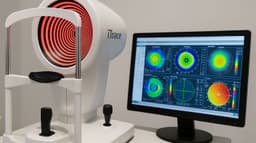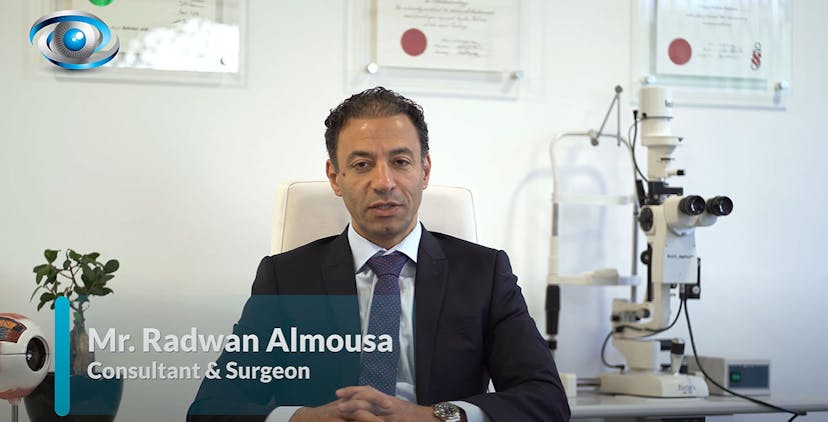
Macular Hole: From Diagnosis To Treatment
Summary:
A macular hole is a small break or tear in the macula, the central part of the retina responsible for sharp, detailed vision. This condition can cause blurred and distorted vision, making everyday tasks like reading and driving difficult. Macular holes can develop due to ageing, injury, or certain eye conditions. They often start with minor visual disturbances and can worsen over time if left untreated. Treatment typically involves a surgical procedure called vitrectomy, which can help repair the hole and restore vision. Early diagnosis and treatment are crucial for the best outcomes, so individuals experiencing symptoms should consult an eye specialist promptly.
What Does A Macular Hole Look Like?

Imagine looking at a detailed image or reading a book, and noticing a small, central area that appears blurry, distorted, or has a dark spot right in the middle of your field of vision. This is what the visual experience of a macular hole might be like. You may find that straight lines appear wavy or that objects seem slightly misshapen when viewed directly.
If you were to look in the mirror, you wouldn't see the macular hole itself, as it is located inside the eye on the retina. However, the symptoms would still be apparent. You might notice that when focusing on your own face, the central part of your vision is not clear, and you can't see fine details sharply. This can be disorienting and affect activities that require focused vision, such as reading, driving, or recognising faces.
Physically, you wouldn't feel pain from the macular hole, but the visual disturbances can be frustrating and concerning.
Macular Hole Diagnosis
As a person walking into an eye clinic in the UK, your first step would be to check in at the reception desk. The receptionist would greet you and ask for your appointment details or register you as a new patient if it's your first visit. You will need to provide some personal information and insurance details if you have private medical insurance.
Check-In
Once checked in, you would wait in an inviting waiting area until it's your turn to see the eye specialist. The waiting times can vary depending on the clinic's schedule and how busy they are. In some cases, you might have to wait a short while, especially if you're seeing a specialist for a specific issue.
Eye Examination
During your appointment, you will meet with an eye specialist who will conduct a comprehensive eye examination. This might include tests such as visual acuity tests, intraocular pressure measurement, and examination of the retina and optic nerve. If you're experiencing specific symptoms like blurred vision or flashes of light, you will discuss these with the specialist, who may perform additional tests as needed to make a diagnosis.
Eye Test
Depending on your symptoms, you might undergo a series of diagnostic tests such as optical coherence tomography (OCT), fluorescein angiography, or ultrasound imaging to get a detailed view of your eye’s structures.

Cost
In terms of cost, if you're accessing eye care through the NHS, the cost would typically be covered by the healthcare system. However, there might be some out-of-pocket expenses for certain services or treatments. If you choose to go with My-iClinic, you will get a consultation, tests, and any treatments provided. The cost can vary but finance options are available.
Benefits
The benefits of visiting a private eye clinic include potentially shorter waiting times for appointments, more personalised care, and access to advanced diagnostic and treatment options. My-iClinic offers a range of services and treatments that may not be available through the NHS, and you may have more flexibility in choosing appointment times that suit your schedule.
Overall, whether you choose to access eye care through the NHS or a private clinic, the most important thing is to receive timely and comprehensive care to address any vision concerns and ensure the health of your eyes.
Macular Hole Treatment
Preparation
Before undergoing any treatment at the eye clinic, you may need to follow specific preparation instructions provided by your eye specialist. This could include discontinuing certain medications, fasting for some time before the procedure, or arranging for transportation home if you'll be receiving sedation during the treatment. Your eye specialist will provide you with detailed instructions tailored to your specific treatment plan.
Duration of Operation
The duration of the operation can vary depending on the type of treatment you're receiving and its complexity. For example, a simple procedure like laser eye surgery or intraocular injections may only take a few minutes to complete, while more involved surgeries like vitrectomy for retinal conditions may take several hours. Your eye specialist will discuss the expected duration of the operation with you beforehand.

Types Of Treatment
- Non-Surgical Options: Not all conditions require surgery. Treatments might include medication, laser therapy, or injections, depending on your specific condition.
- Surgical Procedures: If surgery is necessary, the specialist will explain the type of surgery, such as cataract removal, retinal detachment repair, or macular hole surgery.
Recovery Time
After the treatment, you will be monitored by medical staff to ensure your safety and comfort before being discharged home. The recovery time can vary depending on the type of treatment you received and your individual healing process. For minor procedures, such as laser treatments, you may be able to resume normal activities relatively quickly, while more invasive surgeries may require a longer recovery period. Your eye specialist will provide you with specific guidelines for post-operative care and instructions on when to follow up for further assessment.
Aftercare
Following your treatment, you will likely receive detailed aftercare instructions from your eye specialist. This may include using prescribed eye drops or medications, wearing an eye shield at night to protect the treated eye, and avoiding activities that could strain or irritate the eyes during the recovery period. It's essential to follow these instructions closely to promote healing and reduce the risk of complications.
Checkups
Regular follow-up appointments with your eye specialist are an important part of the treatment process. These checkups allow your specialist to monitor your progress, assess the effectiveness of the treatment, and address any concerns or complications that may arise. The frequency of checkups will depend on your individual treatment plan and the nature of your eye condition. Be sure to attend all scheduled appointments and communicate any changes in your vision or symptoms to your eye specialist.
Overall, by understanding what to expect before, during, and after treatment at the eye clinic, you can feel more confident and prepared to undergo the necessary procedures to maintain or improve your eye health.
Find out more by Speaking to our team









